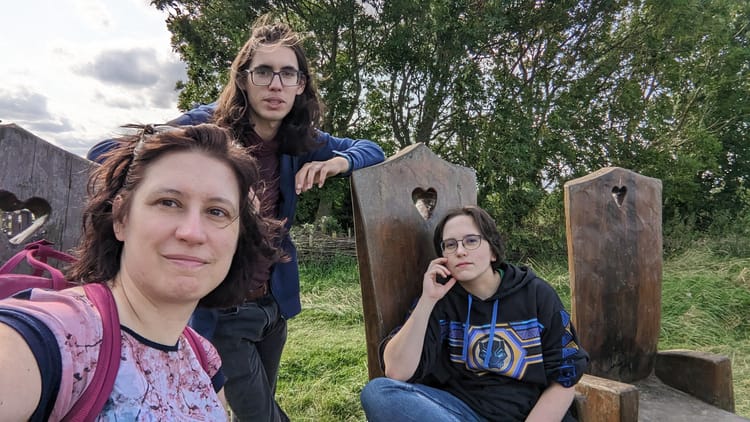Do not let me have what I want
I found an interesting story when I was looking up Hans Christian Andersen in response to a post about scary French children's stories on Facebook). It's The Story of a Mother. Here is the summary on wikipedia, which is pared down but still moving, and here is a more fictionalised, stylised version.
The discussion about whether or not children should be exposed to dark ideas made me want to look up some Andersen because of the different type of darkness, death, etc in stories ostensibly aimed at children. I remember certain vivid images from childhood like the Little Mermaid's pain when she walked (as if on a knife-edge); an image of a mother with three dead children, for which I can't find the source.
Incidentally, I tend to dislike the existential twistedness of many French picture-books (of which there is a specific genre, I'd say; and which are aimed at very young children) compared to the profound discussions of death, loss and morality in stories like many of the Andersen stories, and other dark children's literature (Dahl, Robin Jarvis etc).
I was particularly interested in The Story of a Mother (because there are lots of amazing Andersen stories) for the stunningly moving last appeal of the mother. She basically says "Do not let me have what I want" - and I'm sure there is a cultural reference elsewhere for this and I've been googling it ever since but can't find anything but a few obscure Christian ideas. Perhaps it is a negro spiritual, or something: anyway it rings a bell.
Also, for me the story is scarily evocative of the depth of a mother's love. She will do anything to find her child; she will literally bleed from her own heart, and walk to the ends of the earth and will find the child amongst millions. And it is the fundamental selflessness of a parent's love, that, somewhat like the judgement of Solomon, she would rather lose the child (ie deny her own pleasure) than for it to suffer.
Interesting ethical questions. In fact, it's not like the judgement of Solomon. There, the mother chose to give up her own pleasure (having the child with her) in favour of the child living (albeit, apart from her). The mother in the Andersen would rather the child die than risk its suffering; indeed, a 50-50 risk. But we have to remember the context of this story is that the child is going to God. A continued existence in bliss, presumably. So this skews the statistics of her decision making a little. 50-50 suffering or happiness for the child in life, against a 100% chance of the child's bliss in death combined with a 100% chance of suffering for the mother who loses her child in life. So in the end, selfish versus selfless seems to be her only criterion for the decision.
Although Christians would presumably believe that they would be reunited with the child in death. Typical - religion provides a win-win situation for any problem.
Anyway, who knows - perhaps some suffering is valuable. Personally, I think I'd rather live fully and properly, and risk feeling some pain, than only live half-heartedly, and never feel pain or loss. Also, there is definitely a distinction to be made between what one wants, in the present moment, and what one should have. Naturally, I'd just query whether God should be in charge of making that distinction, as he is in the story. What the mother asks for is for God to decide what should happen - she places her fate in divine hands. Sadly, in reality, much as it's tempting to delegate, I believe the responsibility for that type of decision is mine and mine alone.
Anyway, these thoughts are as far as I've got alone. Feel free to comment or discuss below.





Member discussion